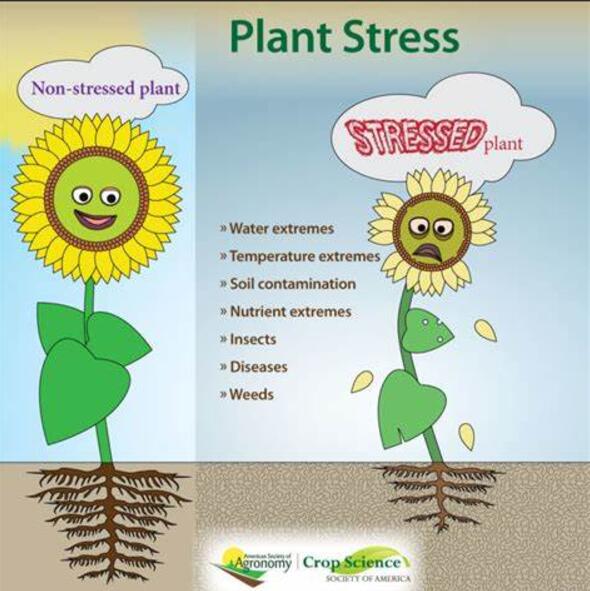Antarctic endophytic fungi enhance strawberry resilience to drought and heat stress by modulating aquaporins and dehydrins
IF 6.8
Q1 PLANT SCIENCES
引用次数: 0
Abstract
Global climate change is linked to an increased occurrence of heat waves and droughts, which alter plant growth and development, and thus threaten food security. By associating with generalist root fungal endophytes that are adapted to harsh environments, crop plants can improve productivity under adverse conditions. Here, we examined the effects of two root endophytes isolated from Antarctica plants (Penicillium chrysogenum and P. brevicompactum) on mechanisms of tolerance to heat and drought in strawberry (Fragaria x ananassa). We found that inoculated plants exhibited better water retention, increased photosynthesis, reduced proline content and lipid peroxidation, and modulated antioxidative enzymatic activity. Transcriptomic and cis-element/transcription factor analyses revealed that differentially expressed genes (DEGs) were associated with abscisic acid (ABA) signaling, including dehydrins, as well as with cellular water homeostasis, such as aquaporins. These DEGs reveal mechanisms that enhance the physiological performance of endophyte-inoculated plants under drought and high-temperatures. This study highlights the novel role of Antarctic fungi in modulating ABA signaling and aquaporin expression, offering potential agricultural applications to enhance plant stress tolerance, which is crucial for improving food security.
求助全文
约1分钟内获得全文
求助全文
来源期刊

Plant Stress
PLANT SCIENCES-
CiteScore
5.20
自引率
8.00%
发文量
76
审稿时长
63 days
期刊介绍:
The journal Plant Stress deals with plant (or other photoautotrophs, such as algae, cyanobacteria and lichens) responses to abiotic and biotic stress factors that can result in limited growth and productivity. Such responses can be analyzed and described at a physiological, biochemical and molecular level. Experimental approaches/technologies aiming to improve growth and productivity with a potential for downstream validation under stress conditions will also be considered. Both fundamental and applied research manuscripts are welcome, provided that clear mechanistic hypotheses are made and descriptive approaches are avoided. In addition, high-quality review articles will also be considered, provided they follow a critical approach and stimulate thought for future research avenues.
Plant Stress welcomes high-quality manuscripts related (but not limited) to interactions between plants and:
Lack of water (drought) and excess (flooding),
Salinity stress,
Elevated temperature and/or low temperature (chilling and freezing),
Hypoxia and/or anoxia,
Mineral nutrient excess and/or deficiency,
Heavy metals and/or metalloids,
Plant priming (chemical, biological, physiological, nanomaterial, biostimulant) approaches for improved stress protection,
Viral, phytoplasma, bacterial and fungal plant-pathogen interactions.
The journal welcomes basic and applied research articles, as well as review articles and short communications. All submitted manuscripts will be subject to a thorough peer-reviewing process.
 求助内容:
求助内容: 应助结果提醒方式:
应助结果提醒方式:


